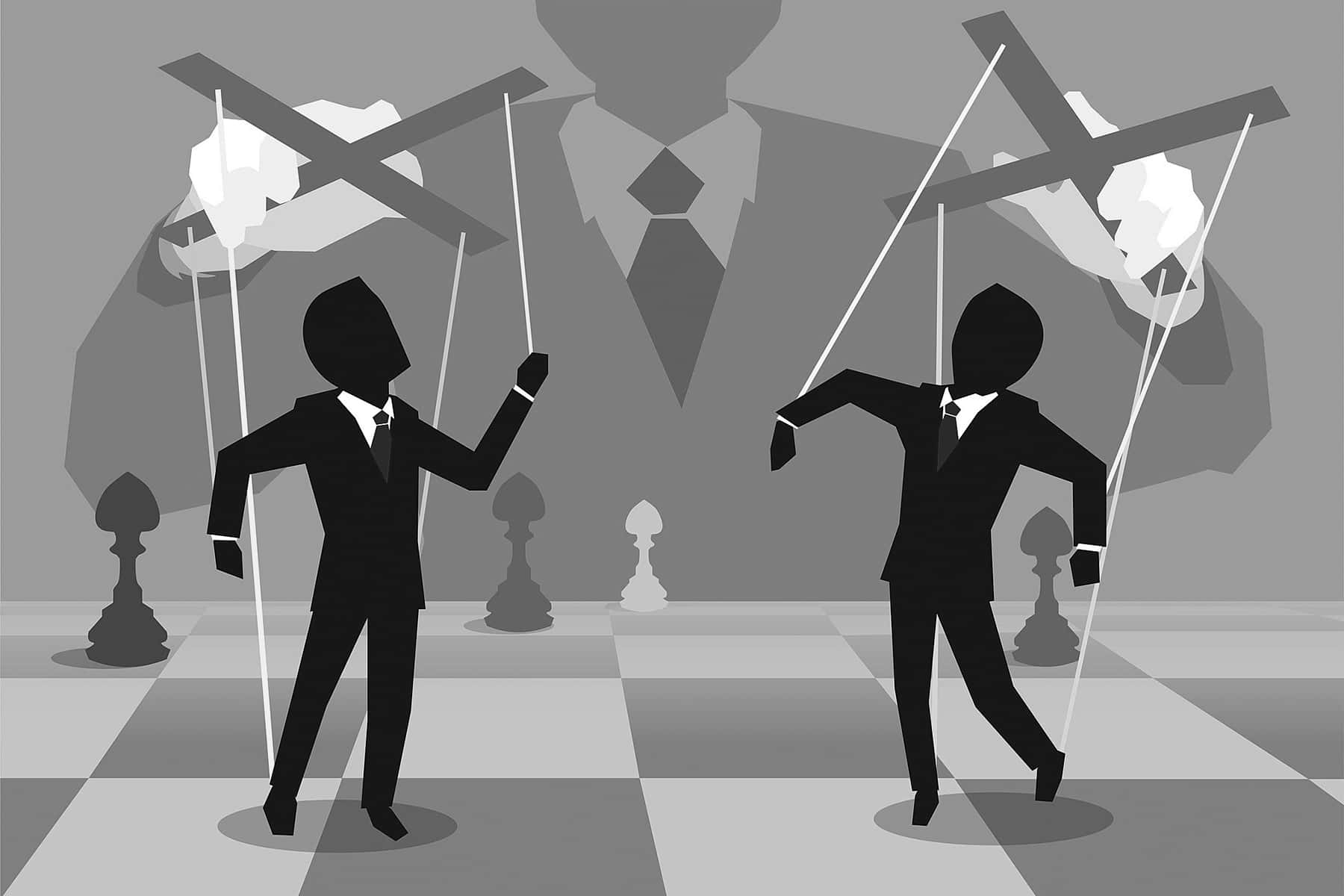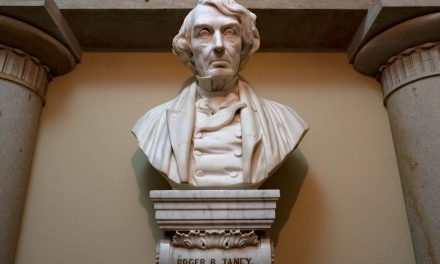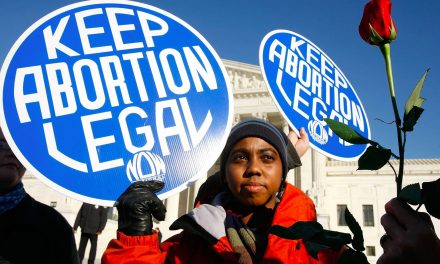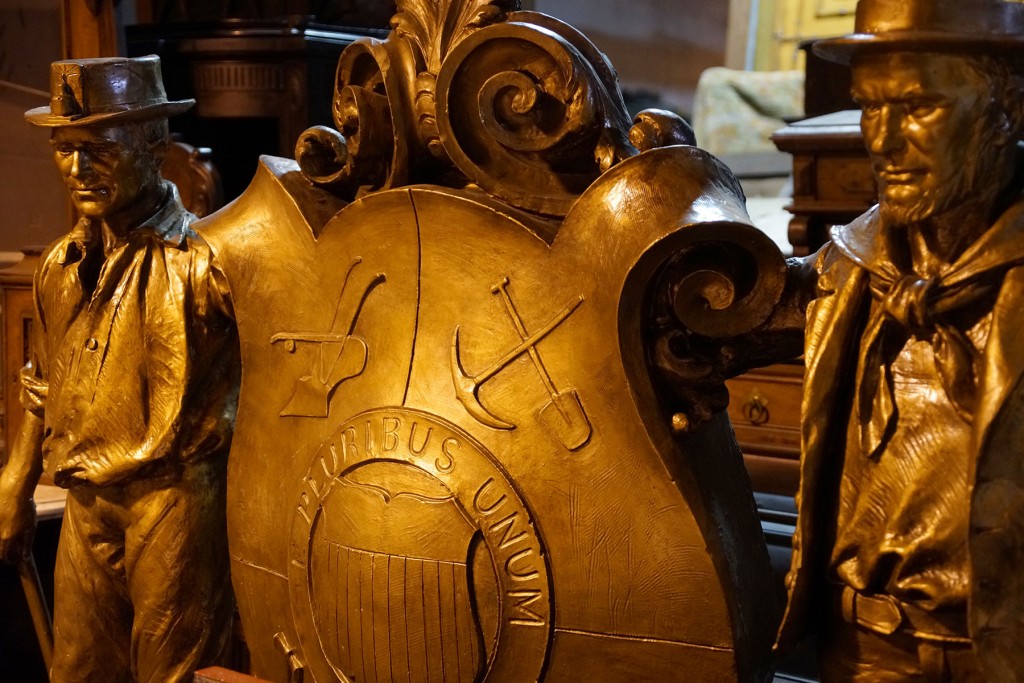
The impeachment trial was never going to produce a conviction, of course, but it could have at least served to shore up even a few of the nominal pillars of democracy yet intact.
Decades of erosion by chief executives, packed courts, congressional (in)action, and general malfeasance have weakened protective mechanisms in areas from voting and campaign finance to government transparency and individual rights. Now, with the short-circuited process and inevitable outcome of the impeachment hearing, there is another nail in the coffin of a fractured system that still sits on an idealized pedestal.
American exceptionalism, when it’s considered at all, is mostly viewed in the context of foreign policies: intervening in the affairs of others and holding the world to standards from which we are somehow exempt. This principle asserts the view that the U.S., as the primary global hegemony – militarily, culturally, and economically – has a sacred responsibility to take action deemed necessary to protect and promote our interests and support causes in which we believe. In practice, this looks like geographical incursions, political manipulations, and rights deprivations when larger concerns make such expedient.
There is, however, another version of American exceptionalism that applies more internally. Under this construct, the national identity becomes entirely bound up with bedrock beliefs in the idyllic virtues of democracy, justice, freedom, and associated “blessings of liberty.” Parallel to the international variety, this aspect holds up a national image that silences dissent when invoked but isn’t met in actual practice. In this guise, the mantle of patriotism can be claimed by those working actively against the higher ideals.
These themes have come to light in the course of the impeachment proceedings, particularly in the proffered defense which asserted, in essence, that as a constitutional matter a President simply cannot be convicted and removed. The rationale is that, unlike life-tenured federal judges, a President must stand for election every four years. This means that there’s another mechanism for removing elected officials, namely the democratic process. In other words, the sanctity of the Constitution and electoral processes mitigate against congressional removal.
Despite its implicit valorization of American ideals, the radical standard set by this argument could serve to further cement the “imperial presidency” that has been steadily expanding over the decades. George W. Bush, for example, took the practice of issuing “signing statements” to new heights of presidential fiat. In these statements, Bush would routinely render objections or even outright exemptions to the bills being signed, operating in some respects like a line-item veto of statutory provisions deemed inconvenient or antithetical to the President’s agenda.
The trend toward expanding executive powers has been well documented, but the arguments advanced in the impeachment trial threaten to take it to a more dangerous level. Commentators have lamented the implications of acquitting on the grounds argued, noting that it could effectively immunize nearly any presidential conduct in the service of getting reelected. The permutations of this would grant sitting presidents the right to do almost anything deemed necessary to maintain their power, with no prospect of real oversight—except apparently that of “the people” in our exceptionalist democratic mythos.
The underlying basis of impeachment acquittal could confer a veritable executive carte blanche, and in the process weaken the foundering “checks and balances” in the system. This surfacing is critical, further rendering unmistakable the extant gap between American values and our actual politics. Perhaps in an ironic twist, the exposure of illusory principles to fractious daylight will prompt multitudes to demand change. Until then, we are left with the spectacle of democratic veneration amidst the specter of tyranny.
“Senate Republicans have ensured a cover-up that will haunt our democracy for generations to come. Make no mistake, Donald Trump committed two impeachable offenses—abusing the power of his office and obstructing Congress—and acquitting him of those crimes is a refusal to uphold one’s oath of office. At every step of this impeachment trial, Republican Senators have acted as the President’s personal bodyguards. By refusing to allow any witnesses or documents, they’re engaging in a cover-up. Pronouncing his innocence before the trial even began, these Senators did not even attempt to act as impartial jurors. They suspended their oaths to the Constitution in favor of protecting a tyrant, long ago. “If we can’t trust the Senate to hold this President accountable, then they must at least uphold their basic duty and pass legislation to protect our democracy from further foreign interference. Our democracy is now too vulnerable to afford another election unprotected.”
– Congressman Mark Pocan (WI)
Foreshadowing how the situation will continue to play out, President Donald Trump was reportedly compiling a Nixonian “enemies list” as he seeks to retaliate for the congressional impeachment process. According to sources, targets of retribution include House Intelligence Committee Chair Representative Adam Schiff (D-CA), House Judiciary Committee Chair Representative Jerry Nadler (D-NY), Senator Mitt Romney (R-UT), and former national security adviser John Bolton.
Senator Mitt Romney of Utah was the only Republican to break from his party to vote for removing Trump from office. He delivered a carefully worded and historic speech from the floor of the Senate, detailing his intention to vote for a conviction of the president of the United States on one of the two articles of impeachment: abuse of power.
Full Speech by Senator Mitt Romney
“The Constitution is at the foundation of our Republic’s success, and we each strive not to lose sight of our promise to defend it. The Constitution established the vehicle of impeachment that has occupied both houses of Congress for these many days. We have labored to faithfully execute our responsibilities to it. We have arrived at different judgments, but I hope we respect each other’s good faith.
The allegations made in the articles of impeachment are very serious. As a Senator-juror, I swore an oath, before God, to exercise “impartial justice.” I am a profoundly religious person. I take an oath before God as enormously consequential. I knew from the outset that being tasked with judging the President, the leader of my own party, would be the most difficult decision I have ever faced. I was not wrong.
The House Managers presented evidence supporting their case; the White House counsel disputed that case. In addition, the President’s team presented three defenses: first, that there can be no impeachment without a statutory crime; second, that the Bidens’ conduct justified the President’s actions; and third that the judgement of the President’s actions should be left to the voters. Let me first address each of those defenses.
The historic meaning of the words “high crimes and misdemeanors,” the writings of the Founders and my own reasoned judgement convince me that a president can indeed commit acts against the public trust that are so egregious that while they are not statutory crimes, they would demand removal from office. To maintain that the lack of a codified and comprehensive list of all the outrageous acts that a president might conceivably commit renders Congress powerless to remove a president defies reason.
The President’s counsel noted that Vice President Biden appeared to have a conflict of interest when he undertook an effort to remove the Ukrainian Prosecutor General. If he knew of the exorbitant compensation his son was receiving from a company actually under investigation, the Vice President should have recused himself. While ignoring a conflict of interest is not a crime, it is surely very wrong.
With regards to Hunter Biden, taking excessive advantage of his father’s name is unsavory but also not a crime. Given that in neither the case of the father nor the son was any evidence presented by the President’s counsel that a crime had been committed, the President’s insistence that they be investigated by the Ukrainians is hard to explain other than as a political pursuit. There is no question in my mind that were their names not Biden, the President would never have done what he did.
The defense argues that the Senate should leave the impeachment decision to the voters. While that logic is appealing to our democratic instincts, it is inconsistent with the Constitution’s requirement that the Senate, not the voters, try the president. Hamilton explained that the Founders’ decision to invest senators with this obligation rather than leave it to voters was intended to minimize—to the extent possible—the partisan sentiments of the public.
This verdict is ours to render. The people will judge us for how well and faithfully we fulfilled our duty. The grave question the Constitution tasks senators to answer is whether the President committed an act so extreme and egregious that it rises to the level of a “high crime and misdemeanor.”
Yes, he did.
The President asked a foreign government to investigate his political rival.
The President withheld vital military funds from that government to press it to do so.
The President delayed funds for an American ally at war with Russian invaders.
The President’s purpose was personal and political.
Accordingly, the President is guilty of an appalling abuse of the public trust.
What he did was not “perfect”— No, it was a flagrant assault on our electoral rights, our national security interests, and our fundamental values. Corrupting an election to keep oneself in office is perhaps the most abusive and destructive violation of one’s oath of office that I can imagine.
In the last several weeks, I have received numerous calls and texts. Many demand that, in their words, “I stand with the team.” I can assure you that that thought has been very much on my mind. I support a great deal of what the President has done. I have voted with him 80% of the time. But my promise before God to apply impartial justice required that I put my personal feelings and biases aside. Were I to ignore the evidence that has been presented, and disregard what I believe my oath and the Constitution demands of me for the sake of a partisan end, it would, I fear, expose my character to history’s rebuke and the censure of my own conscience.
I am aware that there are people in my party and in my state who will strenuously disapprove of my decision, and in some quarters, I will be vehemently denounced. I am sure to hear abuse from the President and his supporters. Does anyone seriously believe I would consent to these consequences other than from an inescapable conviction that my oath before God demanded it of me?
I sought to hear testimony from John Bolton not only because I believed he could add context to the charges, but also because I hoped that what he said might raise reasonable doubt and thus remove from me the awful obligation to vote for impeachment.
Like each member of this deliberative body, I love our country. I believe that our Constitution was inspired by Providence. I am convinced that freedom itself is dependent on the strength and vitality of our national character. As it is with each senator, my vote is an act of conviction. We have come to different conclusions, fellow senators, but I trust we have all followed the dictates of our conscience.
I acknowledge that my verdict will not remove the President from office. The results of this Senate Court will in fact be appealed to a higher court: the judgement of the American people. Voters will make the final decision, just as the President’s lawyers have implored. My vote will likely be in the minority in the Senate. But irrespective of these things, with my vote, I will tell my children and their children that I did my duty to the best of my ability, believing that my country expected it of me. I will only be one name among many, no more or less, to future generations of Americans who look at the record of this trial. They will note merely that I was among the senators who determined that what the President did was wrong, grievously wrong.
We’re all footnotes at best in the annals of history. But in the most powerful nation on earth, the nation conceived in liberty and justice, that is distinction enough for any citizen.”
Randall Amster and Jake Johnson
Originally published on Common Dreams.














